News

ADB-Backed Irrigation Shift Tests Sri Lanka’s Climate Readiness
Sri Lanka has formally entered a new development partnership with the Asian Development Bank (ADB) aimed at modernising irrigation systems in drought-prone regions, a move that carries both economic promise and implementation risks for an agriculture-dependent economy already under climate stress.
The agreement, signed at the Finance Ministry in Colombo, launches the Transforming Irrigation Systems for Improved Food Security Project, financed through a $3 million grant from the Japan Fund for Prosperous and Resilient Asia and the Pacific, alongside $1.63 million in Government counterpart funding. While modest in scale, the project is positioned as a pilot for long-term structural reform in irrigation management.
Sri Lanka’s irrigation network, nearly 99% of which relies on open, gravity-fed earthen canals, has long suffered from inefficiencies. Water losses through seepage and evaporation are estimated to be substantial, reducing crop yields and worsening farmer vulnerability, particularly in the Dry Zone where rainfall patterns have become increasingly erratic. These inefficiencies translate into economic costs through lower agricultural output, higher food prices and increased fiscal pressure from emergency relief and imports.
The project proposes a shift towards closed Pipe Distribution Network (PDN) systems across four pilot locations in the North Western and Uva Provinces, covering about 877 hectares. By minimising water losses and enabling predictable irrigation schedules, policymakers expect productivity gains, improved water security and reduced exposure to climate-induced shocks.
From an economic perspective, the potential benefits are significant. Improved irrigation efficiency could stabilise paddy and field crop production, reduce dependency on food imports, and enhance rural incomes. If scaled nationally, such systems could lower the long-term public expenditure associated with drought relief and crop compensation schemes.
However, concerns remain. Critics point out that pilot projects often struggle to transition into nationwide reforms due to funding constraints, institutional inertia and maintenance challenges. Pipe-based systems require higher upfront capital investment, skilled maintenance and strong farmer participationareas where past projects have faced mixed results. Without proper training and ownership transfer to farmer organisations, there is a risk that infrastructure could deteriorate once donor oversight ends.
Moreover, the relatively small geographic coverage raises questions about immediate macroeconomic impact. While the project may improve conditions locally, its contribution to national food security and inflation control will depend on scalability, policy coherence and continued investment beyond 2029.
As Sri Lanka grapples with climate change, fiscal consolidation and food security concerns, this initiative represents both an opportunity and a test. Its success will hinge not merely on engineering solutions, but on governance, accountability and the ability to convert pilot success into systemic reform.

Shop Manager Shot Dead in Ambalangoda; Police Launch Manhunt
A shooting incident in Ambalangoda this morning (22) claimed the life of a man, according to police.Preliminary investigations have identified the victim as the manager of a shop located in Ambalangoda town. Police said the attack was carried out by two suspects who arrived on a motorcycle before opening fire and fleeing the scene.
Initial findings suggest the killing stemmed from an ongoing rivalry between two criminal factions, though authorities say further inquiries are needed to establish the full circumstances.The Ambalangoda Police have launched an investigation and are continuing efforts to identify and arrest those responsible for the shooting.

Relief Measures Ease MSME Pain, Rate Dispute Persists
Sri Lanka’s debate over MSME financing has entered a new phase, with the Industry and Entrepreneurship Development Ministry rolling out emergency relief measures even as fundamental disagreements over lending rates remain unresolved.
On one side, MSME associations continue to argue that licensed banks have failed to transmit policy rate reductions fairly, keeping borrowing costs elevated despite easing monetary conditions. On the other, the Industry Ministry and financial authorities stress that immediate relief, stability of the banking system, and risk management must take precedence as the economy navigates post-crisis recovery and climate-related shocks.
The Ceylon Federation of MSMEs has consistently highlighted what it describes as a structural distortion in the interest-rate transmission mechanism following the 2022 crisis. While acknowledging that aggressive monetary tightening was unavoidable at the time, the Federation maintains that subsequent policy easing has not translated proportionately into lower lending rates for small and medium enterprises. According to its submission, the gap between policy rates and market lending rates continues to burden MSMEs, constraining recovery, investment and employment.
The Federation has further questioned the justification for sustained lending spreads, pointing to improved profitability in several licensed commercial banks during the same period. It has urged regulators to exercise supervisory powers more actively and has called for redress mechanisms, including the reversal of what it considers excess interest charged to MSME borrowers.
Against this backdrop, the Industry and Entrepreneurship Development Ministry has taken a more pragmatic stance, prioritising immediate cash-flow relief for businesses affected by Cyclone Ditwah. At a special meeting chaired by Minister Sunil Handunneththi, banks agreed to extend loan repayment periods by three to six months without imposing additional interest or penalties, in line with a Central Bank circular.
From the Ministry’s perspective, these measures demonstrate responsiveness to MSME distress while preserving financial sector stability. Officials argue that banks continue to face legacy risks from the crisis period and must balance credit support with prudent lending practices. Rather than focusing solely on past rate differentials, the Ministry has emphasised coordinated solutions, including concessional lending schemes recommended by the Central Bank.
The agreement to establish a shared database of distressed businesses reflects this approach. By improving information flow between banks and the Ministry, authorities aim to target relief more effectively and avoid delays or duplication. Weekly reviews have been planned to monitor implementation and adjust policies where necessary.
While MSME representatives welcome short-term relief, they caution that repayment extensions alone do not address the underlying issue of credit affordability. The ongoing tension highlights a broader policy challenge: reconciling MSME demands for cheaper credit with the Government’s emphasis on financial stability and orderly recovery.
As relief measures take effect, the effectiveness of these interventions—and whether they can coexist with deeper reforms to lending practices will be closely watched by both entrepreneurs and policymakers.
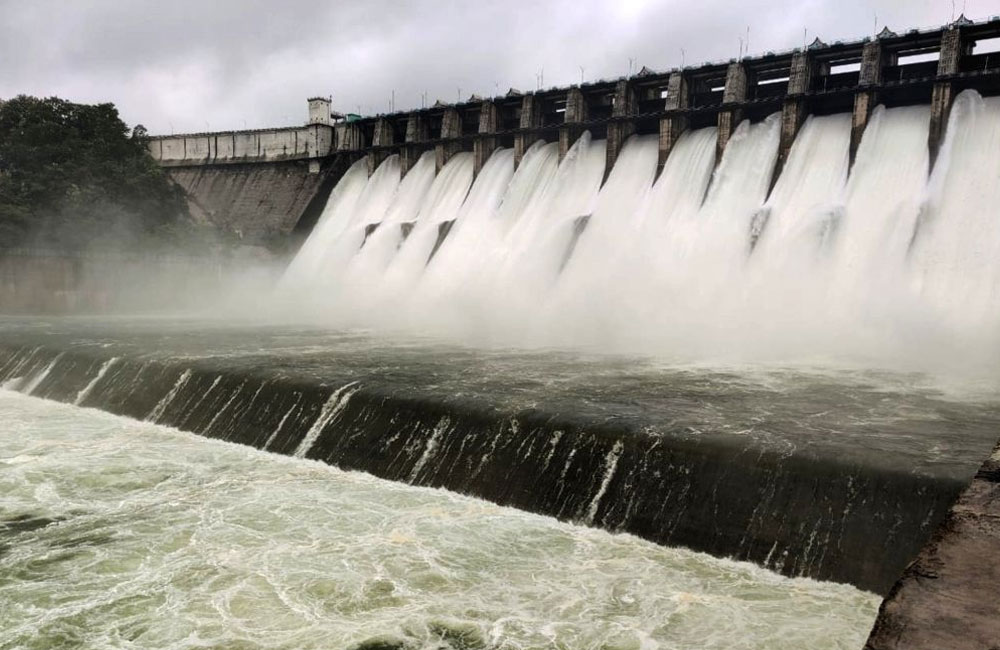
No Flood Threat as Multiple Reservoir Gates Remain Open, Says Irrigation Department
The Department of Irrigation has confirmed that there is no immediate danger of flooding, even though spill and sluice gates at a number of reservoirs remain open due to elevated water levels.Director of Irrigation (Hydrology and Disaster Management) L. S. Sooriyabandara said the water level of the Manampitiya River, which flows into the Mahaweli River, is currently high but not expected to reach flood conditions. He added that several reservoirs within the Mahaweli basin have their sluice gates open as part of controlled water management operations.
Addressing concerns in the Anuradhapura District, Sooriyabandara noted that while the Thanthirimale Reservoir is experiencing relatively high water levels, there has been no significant increase in flooding in surrounding areas.
Rainfall data collected over the past 24 hours show that the highest precipitation was recorded in the Ampara District, with 25 millimetres of rain, according to the Irrigation Department.
The Director further explained that spill gates at 36 reservoirs under the Department’s purview are currently open. However, he stressed that water is being released at safe levels and does not pose a threat to nearby communities.
In addition, 52 medium-scale reservoirs are also discharging water as a precautionary measure, but authorities have assured that these releases do not endanger residents living along riverbanks or in low-lying areas.

Sri Lanka Requests EU Assistance with Sniffer Dogs for Post-Landslide Searches
The government has requested European Union to dispatch a pack of sniffer dogs to assist in the discovery of remains of those buried alive in landslides triggered by cyclone Ditwah, an official said yesterday.
The government authorities still carry out search operations in view of people who went missing after the disasters .Cyclone Ditwah made landfall on November 28 , unleashing unprecedented volumes of rainfall- at times as high as 500 mm. More than 600 people died and scores of others, mainly from the districts in the central hills, went missing due to landslides and floods.
An official of the Disaster Management Centre (DMC) told Daily Mirror that search operations are in progress to find the remains of those who are presumed dead after the landslides.
He said a request was made to the European Union authorities asking for canines .There are specially- trained canines which use their strong sense of smell to find human remains after disasters.
The official said it is challenging to find the bodies trapped deep.
Asked about the exact number of people reported as missing, he said that the respective district secretaries are required to submit them .
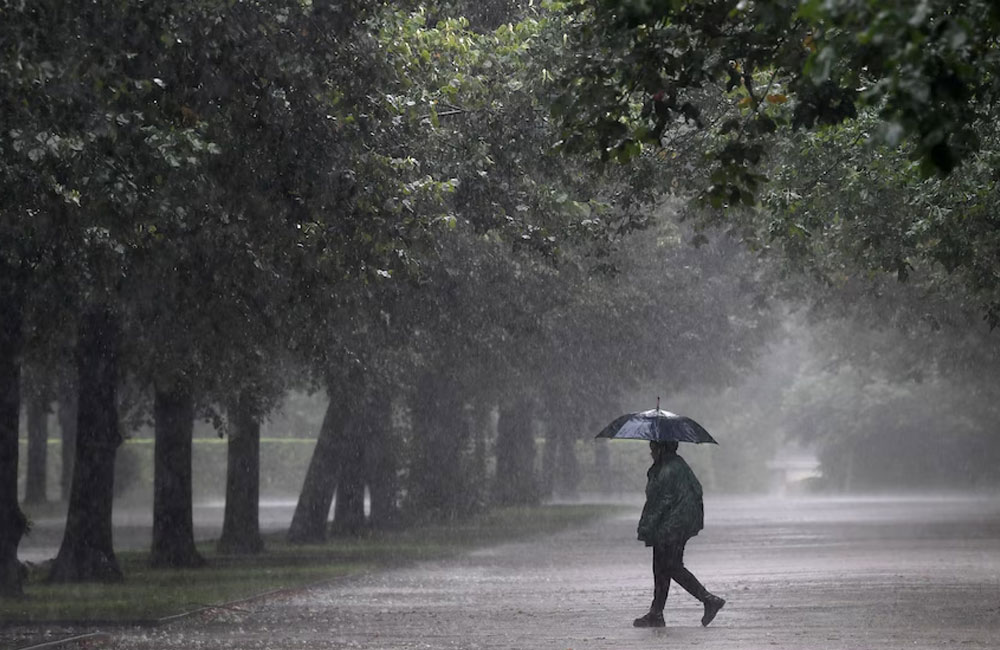
Isolated Showers Forecast for Eastern and Hill Areas Today
Sri Lanka’s Department of Meteorology has forecast limited rainfall in selected parts of the country today , with a few showers expected in the Uva Province as well as the districts of Ampara, Batticaloa, Matale, Nuwara Eliya and Hambantota.
Weather conditions across the rest of the island are expected to remain largely fair throughout the day.
The Met Department also warned of fairly strong winds, reaching speeds of around 40 kmph at times, particularly along the eastern slopes of the central highlands, in the North Western Province, and in the Ampara, Hambantota and Monaragala districts.
In addition, misty conditions are likely during the early morning hours in parts of the Western, Sabaragamuwa and Central provinces, along with the Galle and Matara districts, potentially reducing visibility in some areas.
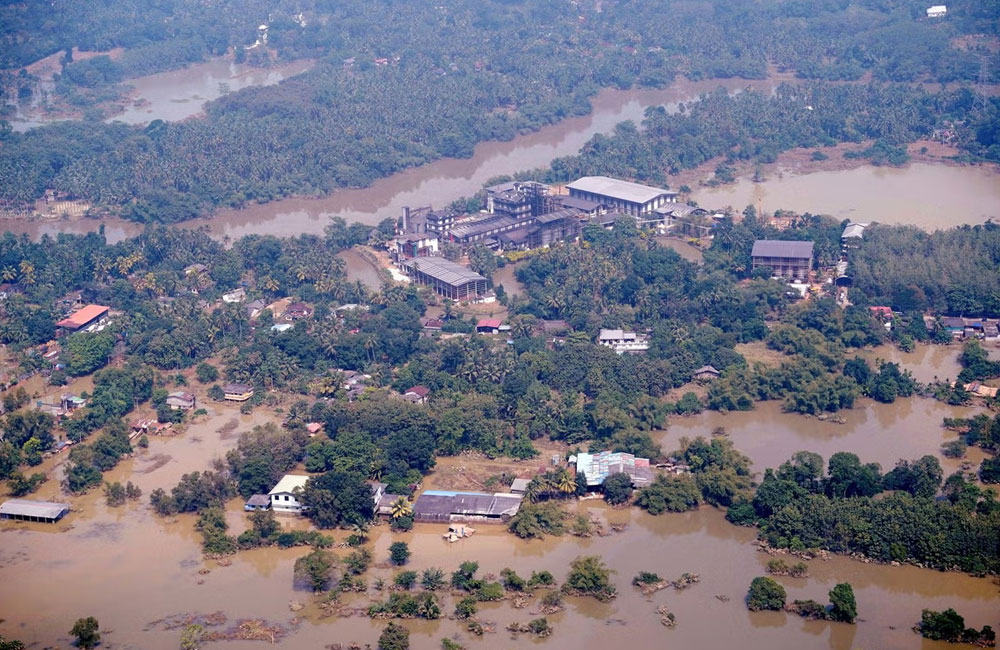
Sri Lanka’s Cyclone Ditwah Disaster Redefines Diplomacy in the Indian Ocean
Cyclone Ditwah may be remembered as one of Sri Lanka’s worst natural disasters in decades, but its geopolitical aftershocks could prove just as significant. India’s rapid and large-scale humanitarian response has not only shaped the country’s immediate recovery but has also underscored how disaster response is increasingly becoming a defining instrument of diplomacy in the Indian Ocean region.
When the cyclone struck on 27 November, Sri Lanka faced widespread flooding, landslides and the collapse of critical infrastructure. Within hours, India launched Operation Sagar Bandhu, mobilising naval, air and disaster-response assets at a speed unmatched by other international partners. The presence of Indian naval vessels in Colombo at the time of the disaster allowed relief supplies to be delivered almost immediately, while air force aircraft and helicopters sustained rescue and evacuation operations over several days.
Beyond the humanitarian imperative, the response highlighted India’s evolving role as a regional first responder. The scale of the operation demonstrated not just goodwill but operational readiness, combining military logistics with civilian disaster-management capabilities. Field hospitals, temporary bridges and specialised rescue teams filled critical gaps at a moment when Sri Lanka’s own capacity was severely stretched.
This approach aligns closely with India’s broader vision for the Indian Ocean as a zone of shared security and stability. As climate change increases the frequency and intensity of extreme weather events, disaster response is becoming a strategic asset. Countries that can act decisively in emergencies build trust, visibility and influence without the political sensitivities often associated with traditional power projection.
For Sri Lanka, the episode highlights both opportunity and responsibility. Reliable regional support can significantly reduce the human and economic costs of disasters. At the same time, Colombo must ensure that emergency cooperation does not evolve into long-term dependency. Strengthening domestic disaster preparedness, early-warning systems and climate-resilient infrastructure remains essential to preserving strategic autonomy.
India’s engagement so far has been largely framed around immediate relief and reconstruction support, with no overt political conditions attached. This has helped reinforce the perception of assistance driven by proximity and shared risk rather than transactional diplomacy. Yet it would be unrealistic to separate humanitarian action entirely from strategic context. Sri Lanka’s central location along major sea lanes ensures that stability on the island is a regional priority for India.
The lesson from Cyclone Ditwah is not that disaster diplomacy is inherently problematic, but that it reflects a changing regional reality. In the Indian Ocean, influence is increasingly measured by responsiveness, reliability and the ability to deliver public goods in times of crisis.
As Sri Lanka rebuilds, the challenge will be to convert this moment of solidarity into durable resilience strengthening partnerships while safeguarding national interests. For India, the operation marks a test case of how humanitarian leadership can shape regional diplomacy in an era defined as much by climate risk as by geopolitics.

Sri Lankan Parliament announces extended holiday for MPs and staff
The Parliament of Sri Lanka has announced an extended recess for Members of Parliament and parliamentary staff.
Accordingly, a 17-day holiday has been approved for Members of Parliament, while parliamentary staff will receive a two-day leave.
On 18 December 2025, a supplementary estimate was presented to Parliament to facilitate the restoration of public services following the recent emergency disaster situation. The estimate was officially approved after a parliament debate held on 19 December.
Following the approval, Parliament was adjourned until 9:30 AM on 6 January 2026.
Under the authority of the Speaker, parliamentary staff have been granted special leave on 22 and 23 December, as communicated through an official circular.
Under the authority of the Speaker, parliamentary staff have been granted special leave on 22 and 23 December, as communicated through an official circular. These dates are in addition to previously declared holidays on 24 and 26 December.
(Adaderana.lk)
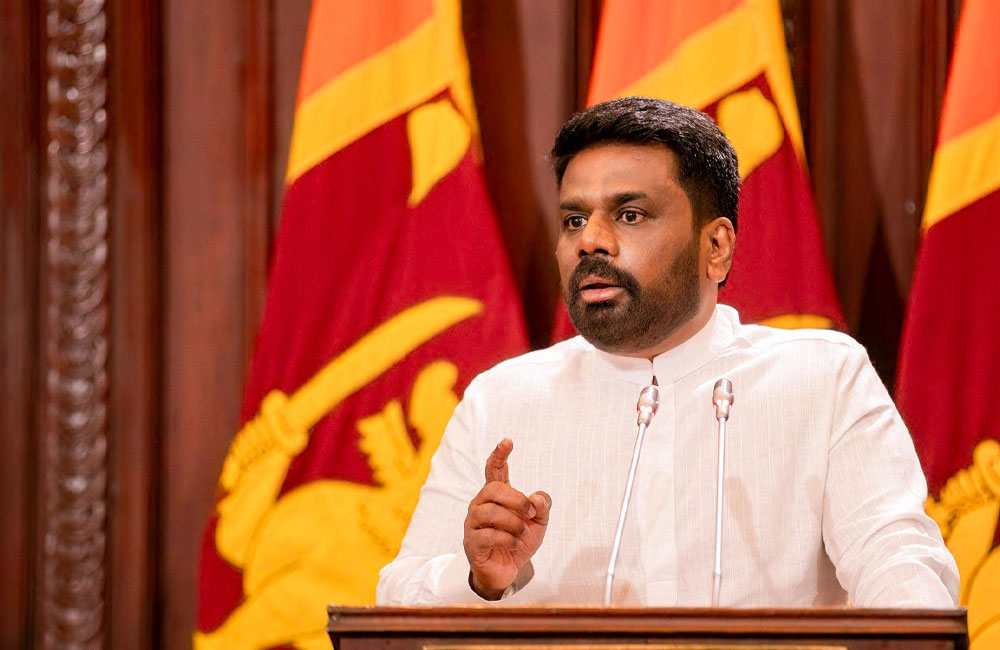
Government Defends Rs. 500 Billion Post-Ditwah Spending Plan
President and Finance Minister Anura Kumara Dissanayake on Wednesday dismissed claims that Sri Lanka’s economy would face a collapse in 2026 due to the Government’s decision to allocate an additional Rs. 500 billion for post-Cyclone Ditwah recovery, insisting that the country now has adequate fiscal space to absorb the spending without destabilising the economy.
Speaking at the conclusion of a special two-day Parliamentary debate on the supplementary estimate, the President said the warnings of economic distress overlooked the scale of fiscal consolidation achieved over the past 14 to 15 months. He stressed that the proposed spending would not increase public debt or breach borrowing limits approved by Parliament.
Dissanayake pointed to Sri Lanka’s strongest fiscal performance on record, noting that the Treasury had moved from chronic overdrafts to a sizeable surplus. Treasury overdrafts, which stood at Rs. 180 billion in 2017 and ballooned to over Rs. 821 billion by 2021, had been eliminated by November 2025, when the Treasury recorded a surplus of Rs. 1.2 trillion.
“These improvements have created the space to respond to emergencies like Ditwah,” he said, adding that such a response would not have been possible under the fiscal conditions inherited by the current administration.
The President highlighted several fiscal milestones achieved in 2025, including government revenue reaching 15.9% of GDP—the highest level since 2007 and the Budget deficit narrowing to 4.5% of GDP, the lowest since 1977. Revenue collections also exceeded annual targets for the first time in Sri Lanka’s history, reaching Rs. 5.12 trillion by early December, surpassing the Budget estimate of Rs. 4.96 trillion.
He further noted that the Government had refrained from increasing borrowing ceilings beyond what Parliament approved. Although the 2026 Budget provided for a borrowing limit of Rs. 3.8 trillion, this was reduced by Rs. 60 billion, and the supplementary estimate would be accommodated within that framework.
Sri Lanka also recorded a primary surplus of 3.8% of GDP in 2025 the highest ever breaking a long-standing pattern of weak fiscal discipline.
The President acknowledged that Cyclone Ditwah struck during a fragile recovery phase, causing widespread damage to livelihoods, infrastructure, and the environment. To fund the recovery, the Government has mobilised Rs. 700 billion, combining the supplementary estimate, redirected capital expenditure, and Treasury surpluses.
While recognising potential inflationary and balance-of-payments risks arising from the injection of funds, Dissanayake said spending would be carefully sequenced and supported by external financing, including a requested $200 million IMF Rapid Financing Instrument and additional multilateral support.

Court Clears Way for Pentara Residences, Rejects Residents’ Appeal
The Civil Appellate High Court of the Western Province has refused leave to appeal and interim relief sought against Home Lands Group’s flagship Pentara Residences project in Thummulla, Colombo, delivering a significant legal victory for the developer and allowing construction to proceed uninterrupted.
In an order dated 11 December 2025, the Court dismissed all applications filed by residents living near the construction site, upholding an earlier ruling by the Colombo District Court. The appellate bench ruled that the lower court had acted correctly in declining to issue urgent enjoining orders and in deciding to hear both parties fully at the stage of interim injunctive relief.
The Court further observed that the petitioners’ actions appeared calculated to circumvent the equitable principle that “delay defeats equity.” It noted that construction had been ongoing for several months before the applications were filed, undermining claims of urgency that would justify immediate judicial intervention.
Residents in the vicinity of the project had raised concerns over excessive noise, vibration and dust arising from piling, excavation and the use of heavy machinery. On this basis, they sought urgent court orders to halt construction pending the outcome of legal proceedings, arguing that the works interfered with their health and the peaceful enjoyment of their properties.
However, the District Court found that the construction had already progressed for a considerable period and ruled that the threshold of urgency required to grant an enjoining order had not been met. Instead, it directed that the matter be taken up after notice, allowing both sides to present their cases at the interim injunction stage.
In affirming this reasoning, the Civil Appellate High Court highlighted that the plaint itself acknowledged inspections and inquiries conducted by multiple state institutions, including the National Building Research Organisation (NBRO), the Central Environmental Authority (CEA), and the Electro Technology Laboratory. These agencies had examined the residents’ complaints prior to the filing of court action.
The plaintiffs who filed 12 separate cases—include several professionals and homeowners residing in close proximity to the development site. Despite the multiplicity of applications, the appellate court refused leave to appeal in all cases and awarded costs against the petitioners.
Pentara Residences is a 40-storey twin-tower luxury residential development approved by the Board of Investment, with a total investment estimated between US$100 million and US$110 million. Home Lands Group acquired nearly one acre of prime Colombo land for the project at Rs. 4.5 billion, marking the largest land transaction ever recorded in the city.
The project, backed by Hatton National Bank PLC, commenced construction after receiving development approval from the Urban Development Authority and securing all statutory and environmental clearances, including NBRO and Environmental Consultative Committee approvals.
Legal representation for Home Lands was led by President’s Counsels Ali Sabry, Kushan De Alwis and Eraj De Silva, while the residents were represented by President’s Counsel Kuvera de Zoysa and his legal team.

Indian Pharma Firm Offers to Cover Costs of Independent Global Drug Tests
Indian pharmaceutical firm Maan Pharmaceutical (Pvt) Ltd. has informed Sri Lanka’s Ministry of Health that it is willing to finance independent testing of the withdrawn batches of the Ondansetron injection at an internationally accredited laboratory.In a formal communication to the Ministry, the company requested that the relevant batches be sent for overseas analysis. It also stressed that maintaining proper storage conditions for the samples prior to testing falls under the responsibility of Sri Lankan health authorities.
The National Medicines Regulatory Authority (NMRA) ordered the immediate removal of four batches of the Ondansetron injection from both public and private hospitals on December 13. The drug, manufactured by Maan Pharmaceutical, was withdrawn following concerns over potential contamination.
Authorities have confirmed that the injection had been administered to two patients who later died. However, officials have emphasised that investigations are still ongoing to establish whether there is a direct link between the drug and the deaths.In its letter, Maan Pharmaceutical reiterated its call for prompt international testing of the affected batches and reaffirmed its commitment to meet all associated costs. The company also highlighted the need to verify that the samples were stored in line with required quality and safety standards before testing is carried out.
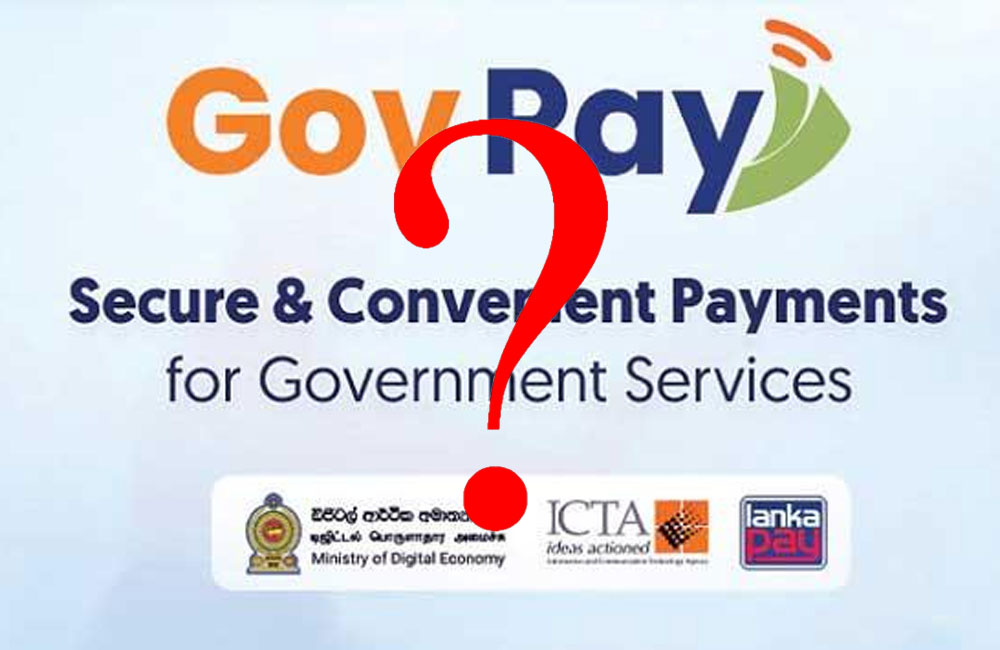
Can GovPay Protect Public Finances in a Climate Crisis?
Sri Lanka’s growing exposure to climate-related disasters has intensified scrutiny of how the State manages revenue during emergencies. Amid cyclone-induced spending pressures, GovPay the Government’s digital payment platform has become a focal point in debates over fiscal resilience, transparency, and long-term sustainability.
Launched less than a year ago, GovPay’s transaction value crossed Rs. 2 billion by the end of 2025, reflecting strong institutional uptake and public adoption. Supporters argue that this rapid growth demonstrates how digital infrastructure can stabilise revenue flows when traditional collection mechanisms are disrupted by disasters.
From an economic perspective, GovPay addresses a chronic weakness in Sri Lanka’s public finance system: fragmented, cash-heavy revenue collection vulnerable to delays and leakages. During disaster periods, these inefficiencies are amplified. Digitisation, by contrast, enables immediate settlement, automated reconciliation, and real-time monitoring—features that become critical when emergency spending must be carefully managed.
The platform’s performance during cyclone response efforts reinforced this argument. Digital donations collected through GovPay ensured traceability and reduced administrative overheads, while enabling overseas contributions without intermediary costs. In a crisis where public confidence matters as much as funding, transparency became a fiscal asset.
Yet the platform’s limitations are equally clear. Rs. 2 billion, while symbolically important, is negligible compared to the fiscal burden of disaster recovery, which runs into hundreds of billions of rupees. GovPay cannot replace concessional financing, insurance mechanisms, or international aid. Its contribution is structural rather than quantitative.
There are also execution risks. Nationwide rollout delays partly caused by adverse weather highlight the vulnerability of digital initiatives to the same disruptions they aim to mitigate. Ensuring continuity, cybersecurity, and institutional readiness remains a challenge, especially at local government level.
Still, GovPay’s expansion into traffic fines, universities, and local authorities signals a deeper transformation. By embedding digital payments into everyday state-citizen interactions, the Government is gradually building a more shock-resistant revenue ecosystem.
In the context of recurring climate shocks, GovPay may not fund reconstruction—but it strengthens the fiscal plumbing that keeps the State functioning under pressure. Its real test will be whether digital efficiency translates into measurable budgetary discipline when the next disaster strikes.
Page 48 of 681